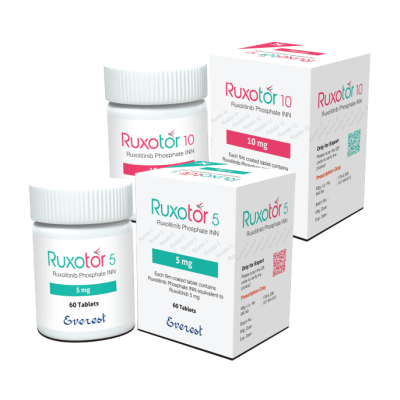- Adults with certain types of myelofibrosis (MF)
- Adults with polycythemia vera (PV) who have already taken a medicine called hydroxyurea and it did not work well enough or they could not tolerate it
- Adults and children 12 years of age and older with acute graft-versus-host-disease (aGvHD) who have taken corticosteroids and they did not work well enough Adults and children 12 years of age and older with chronic graft-versus-host-disease
- (cGvHD) who have taken one or two types of treatments and they did not work well enough.
Ruxolitinib is a drug that works by inhibiting two proteins called JAK1 and JAK2. These proteins are involved in signaling pathways that help regulate immune function and blood cell production. In diseases like myelofibrosis (MF) and polycythemia vera (PV), these pathways are often overactive, leading to abnormal cell growth. Ruxolitinib blocks this signaling, reducing the growth of abnormal cells and lowering inflammation. In animal models, it has been shown to decrease spleen size, reduce mutant blood cells, and lower inflammatory cytokines. It also helps reduce inflammation and immune cell infiltration in diseases like graft-versus-host disease (GvHD).

